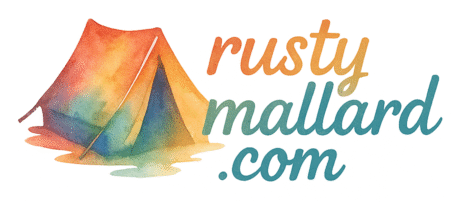Why Go Solo? The Magic of Camping Alone
There’s something undeniably freeing about stepping into the wild with just yourself for company. No distractions, no obligations—just you, nature, and the open sky.
Discovering the Joy of Independence
Solo camping isn’t just about survival; it’s about rediscovery. When you camp alone, you’re the boss. You pick the pace, the food, the site—it’s your world, your rules. Solo camping gives you a rare chance to slow down, reflect, and simply be.
Reconnecting with Nature on Your Terms
Out here, nature isn’t background noise. It is the experience. Every breeze, every rustle of leaves—it’s just for you. It’s the kind of peace that city life can’t offer. Reconnect with the outdoors in its purest form, finding peace and solace away from the hustle of everyday life. Check out some peaceful camping locations to start your journey.
Tip #1: Choose the Right Location
Let’s be real: your spot makes or breaks the trip.
Start with Beginner-Friendly Campsites
If you’re just dipping your toes into solo camping, look for maintained campgrounds or well-known trails. You want a spot that offers safety, accessibility, and some basic facilities to help you ease into solo adventures. For example, some great beginner camping tips can help guide your first solo camping experience.
Consider Accessibility and Safety
When choosing a campsite, keep cell service in mind. It’s not cheating—it’s smart. You might want to select a place where you can still get a signal in case of emergencies. For a more in-depth guide on where to go, check out our curated camping destinations.
Tip #2: Pack Smart and Light
No need to haul the kitchen sink.
Only Bring the Essentials
Every ounce counts. Think lightweight tent, compact cookware, weather-appropriate clothing, and a reliable headlamp. The less weight you carry, the more freedom you have. It’s about efficiency, not excess.
Use a Solo-Camping Gear Checklist
Make packing easier with a solo-camping checklist. Don’t forget your essential gear! You can find helpful recommendations at camping gear, a great resource to ensure you have everything you need.
Tip #3: Test Your Gear First
Don’t let your first campfire be a YouTube tutorial moment.
Practice in Your Backyard
Before heading out, do a dry run in your own backyard. Pitch your tent, light the stove, and get familiar with your gear. That way, when you’re in the wild, you won’t feel overwhelmed.
Understand How Everything Works
Solo camping doesn’t leave room for guesswork. Know your gear like you know your playlist. Whether it’s learning how your stove works or how to properly fold your tent, having everything down pat is key for a stress-free adventure.

Tip #4: Learn Basic Survival Skills
Confidence in the wild isn’t just cool—it’s crucial.
Fire Starting, First Aid, and Map Reading
You don’t need to be Bear Grylls, but knowing how to treat a blister, start a fire, or read a map? Game changers. If you’re unsure where to start, check out these basic survival resources.
Tip #5: Share Your Plans with Someone
Even lone wolves text home.
Safety Comes First, Always
Before leaving, let someone know where you’re going and when you’ll be back. It’s basic, but it can save your life. Share your plans, including your intended campsite and emergency contact info, just in case something goes wrong.
Tip #6: Keep Meals Simple and Nutritious
You don’t have to eat like a squirrel.
Plan Easy, Tasty Recipes
When you’re out there solo, the last thing you want is a complicated meal plan. Stick with simple, nutritious options like trail mix, one-pot meals, and dehydrated food that just need hot water. For recipe inspiration, be sure to check out our camping recipes page for easy meal ideas.
Tip #7: Embrace the Silence
No podcasts. No playlists. Just peace.
Listen to Nature, Not Your Phone
It’s amazing what you hear when you stop trying to drown it out. From chirping crickets to whispering winds—it’s the world’s most ancient lullaby. Take a moment to disconnect from the constant noise of technology. For more tips on finding serenity, dive into the nature section.
Tip #8: Journal Your Experience
You’ll want to remember this.
Document Your Journey and Thoughts
Solo camping can stir some deep thoughts. Capture them in a journal. Reflect on the beauty around you, and what you’re learning from this experience. Keeping a journal is a great way to process and grow from your solo adventure. For more personal growth tips, see our life lessons tag.
Tip #9: Avoid Common Camping Mistakes
They say experience is the best teacher, but…
Prep, Plan, and Prevent Problems
…why not learn from others first? Headlamps without batteries, leaky tents, undercooked meals—skip the horror stories. Plan ahead to avoid the common pitfalls. Our list of camping mistakes will help you stay on track.
Tip #10: Leave No Trace
Nature gives so much—give back with respect.
Respect Nature and Pack Out Everything
The mantra of responsible campers: “Leave no trace.” Whatever you bring in, make sure you pack it out. This includes trash, leftover food, and anything else you might have brought with you. Respect the environment and leave the place just as beautiful as you found it. For more about preserving nature, explore nature education.
Wrapping It All Up: You’ve Got This!
Solo camping isn’t just a trip—it’s a transformation. You’ll come back a little tougher, a little wiser, and a lot more peaceful. Whether you’re chasing stars or just craving quiet, solo camping can be your gateway to something deeply personal and incredibly fulfilling. If you’re looking for more inspiration, ideas, and advice, visit Rusty Mallard for all your outdoor and camping needs.
FAQs
Q1: Is solo camping safe for beginners?
Absolutely—just start with beginner camping tips and well-known sites that offer safety and accessibility.
Q2: What if I get lonely while camping alone?
That’s natural at first, but the solitude can be really healing. Take advantage of the quiet by journaling or observing the environment around you.
Q3: What gear is essential for solo camping?
Tent, sleeping bag, stove, food, water, first aid kit, and navigation tools are a must. Check out the camping gear page for a detailed packing list.
Q4: How do I cook meals when solo camping?
Keep it simple with one-pot meals or pre-made camping meals from camping recipes.
Q5: What are the best solo camping locations in the U.S.?
Explore the best camping locations in the U.S., especially those that are known for being solo-friendly and peaceful.
Q6: How can I stay safe from wild animals?
Store food properly, avoid scented products, and stay aware of wildlife in your area. For safety tips, check out camping safety.
Q7: Can I solo camp in national parks?
Yes, just make sure to follow regulations, check trail conditions, and choose a designated solo camping spot for safety.


